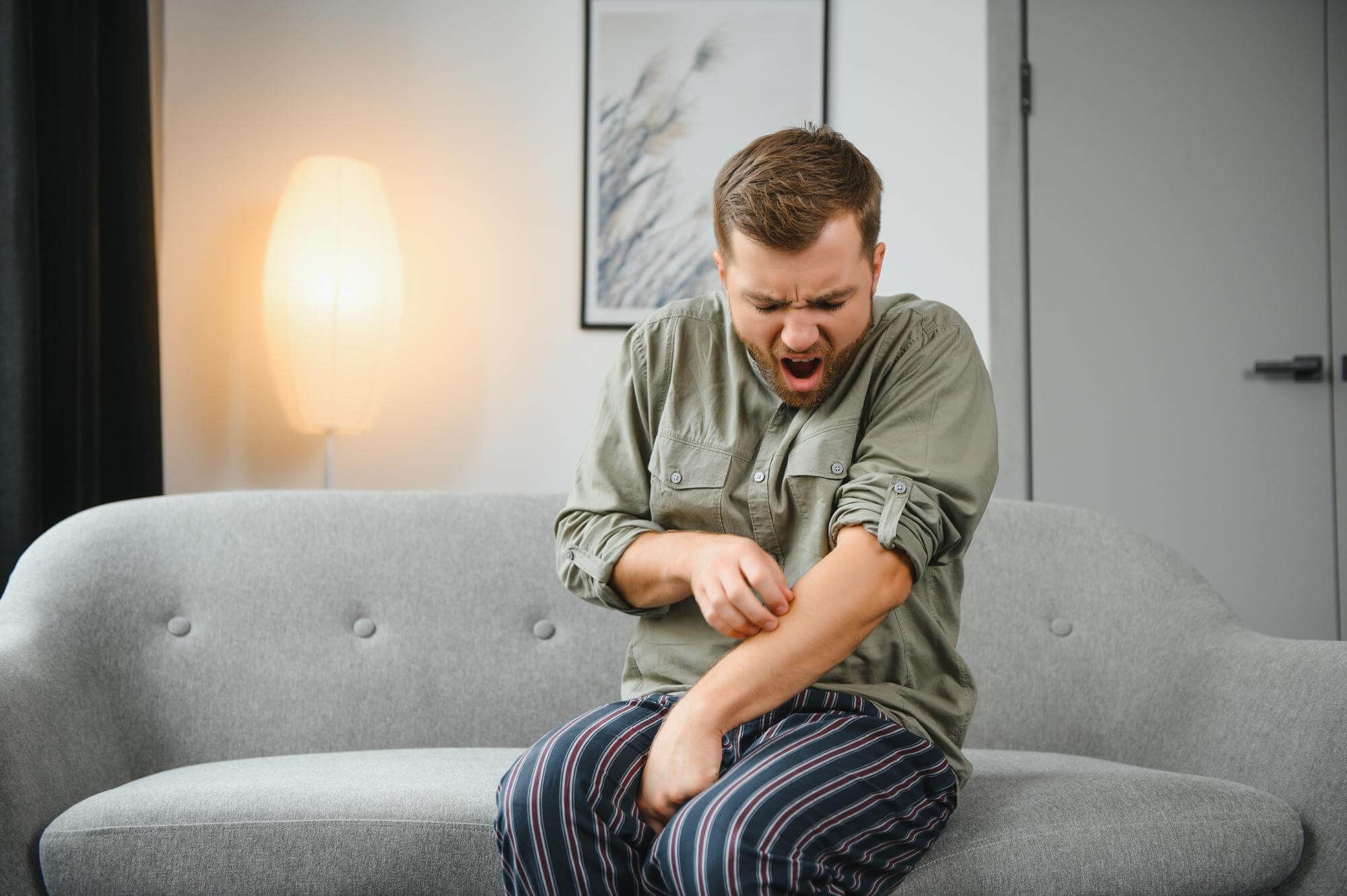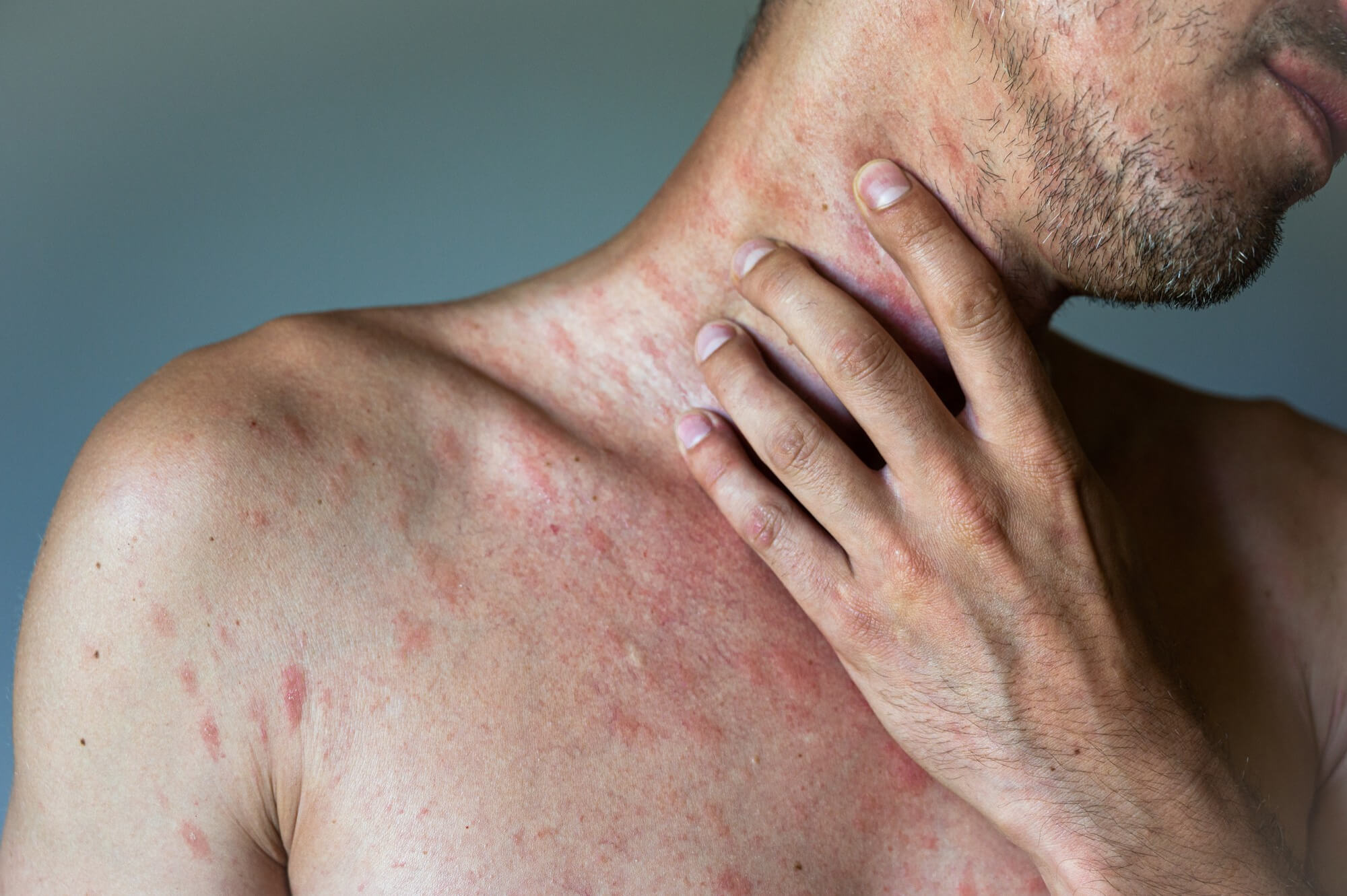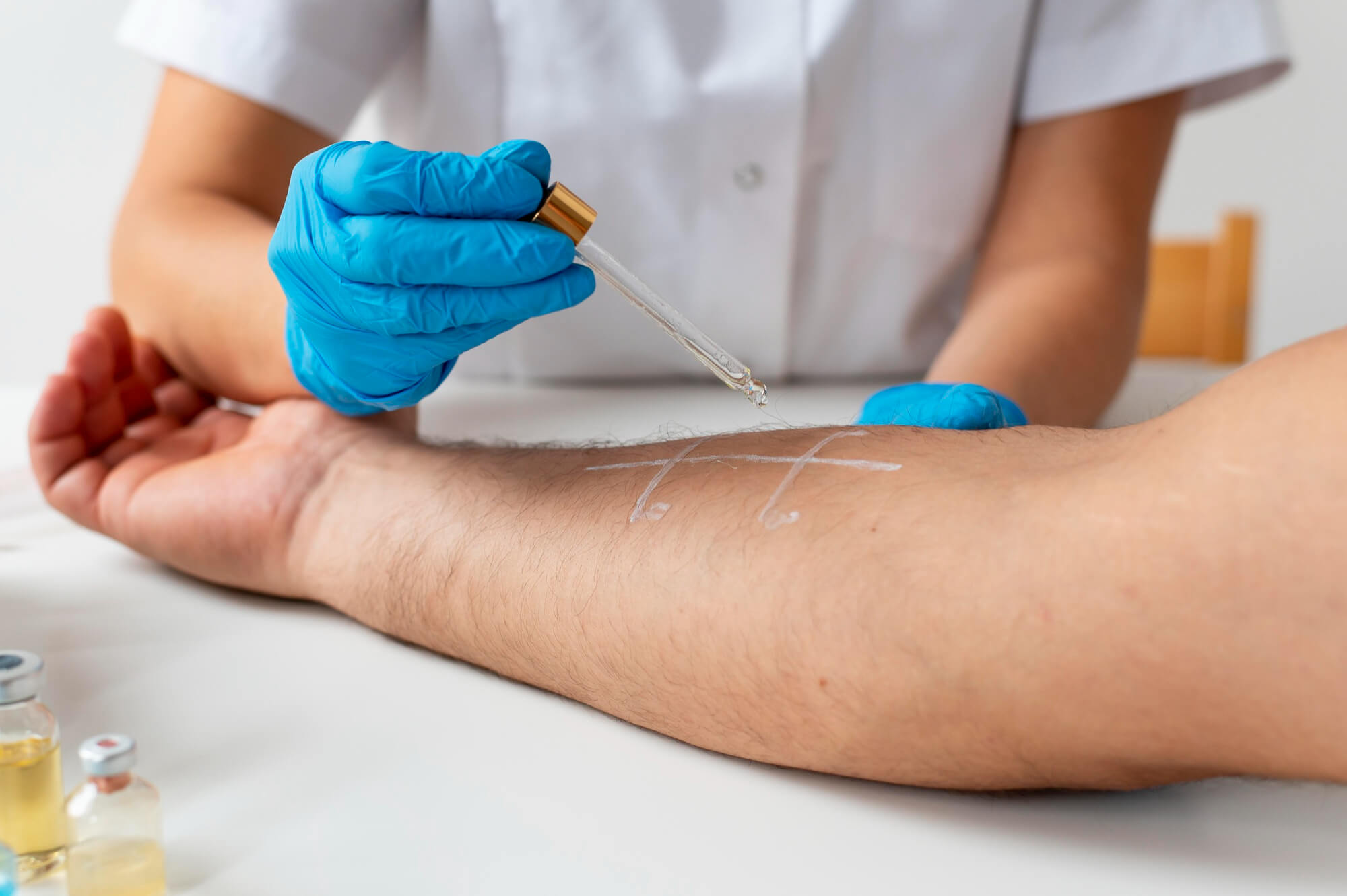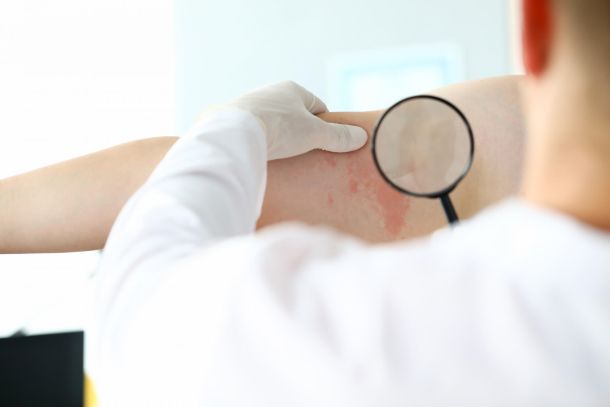Urticaria: how to cope with itching and discomfort


Irina Makarova
What is urticaria
Nettle rash is the common name for a skin condition characterized by the appearance of rashes on the body that resemble the marks from contact with nettles. These rashes, or allergic blisters, are usually accompanied by itching and can be of varying degrees of intensity. Hives can be acute or chronic, and they can occur in both adults and children.
Causes of urticaria
- One of the main causes of urticaria is an allergic reaction. It can be caused by a variety of allergens, including foods, medications, plant pollen, insects, and even physical stimuli such as cold or heat.
- Nervous urticaria is also quite common. Stress and nervous tension can cause or exacerbate urticaria symptoms.
- Physical stimuli such as pressure, friction, cold, heat, or sunlight can cause mechanical urticaria.
Symptoms of urticaria

- Acute urticaria usually begins suddenly. Blister-like rashes may appear all over the body, causing itching and discomfort. Sometimes symptoms may include swelling, especially of the face and lips.
- Chronic urticaria usually lasts more than six weeks. Symptoms may be similar to acute urticaria, but they are longer and often more severe.
How urticaria is diagnosed

One of the first steps in diagnosing urticaria is a visual examination of the skin. The doctor will look for characteristic symptoms, such as rashes and blisters.
The doctor will also take a history, asking questions about the duration of symptoms, possible triggering factors, personal and family history of allergies and urticaria.
Laboratory tests
- A general blood test can help the doctor rule out other possible causes of the symptoms.
- Immunologic tests can help determine if the patient has allergies or other immune reactions that can cause urticaria.
- Allergen tests can help determine if the patient has a specific allergy that can cause urticaria.
Treating Urticaria

Antihistamines such as cetirizine, fexofenadine, or loratadine are often the first-line treatment for urticaria. They help reduce itching and rashes.
In cases of severe itching or when antihistamines are ineffective, hormonal ointments may be prescribed. These may be corticosteroid-based medications such as hydrocortisone or betamethasone.
In the case of chronic urticaria, if other treatments fail, the doctor may consider the use of immunosuppressants such as cyclosporine.
Nonmedicamental therapies
- Following a diet may help if urticaria is caused by certain foods. Your doctor or dietitian can help you make a diet plan that eliminates potential allergens.
- If hives are caused by certain physical stimuli or stress, it is important to learn how to manage these factors. This may include avoiding certain environmental conditions, learning stress reduction techniques, or making lifestyle changes.
If symptoms of urticaria, such as itching, rashes and blisters appear, you should see your doctor. If the rashes do not disappear within a few days, the symptoms get worse, or they are accompanied by other symptoms such as difficulty breathing or facial swelling, you should seek medical attention immediately.
How to prevent hives

Preventing urticaria can be difficult, especially if you don't know what causes it. However, it is important to avoid known allergens and triggers. If you have allergies, follow your doctor's recommendations for managing them. Follow a healthy lifestyle, including a balanced diet, regular exercise and stress management.
In conclusion, hives are a common condition that can cause discomfort and make daily life difficult. However, with proper diagnosis and effective treatment, most people can successfully manage their symptoms and lead fulfilling lives. If you have symptoms of urticaria, see your doctor for diagnosis and treatment.
New materials
Popular Articles
We recommend reading
Contact us in the Contact Us section to ask questions, offer ideas, or for more information about our allergy resource.
Our articles are your trusted source of allergy knowledge. Learn how to make life with allergic reactions easier on our specialized portal.
©
Lechenie-Allergii.com. All rights reserved.
© Lechenie-Allergii.com. All rights reserved.
The information on this site is for informational purposes only and is not a substitute for professional medical advice. We recommend consulting with qualified medical professionals for accurate information and advice.
 English
English  Українська
Українська  Русский
Русский 









